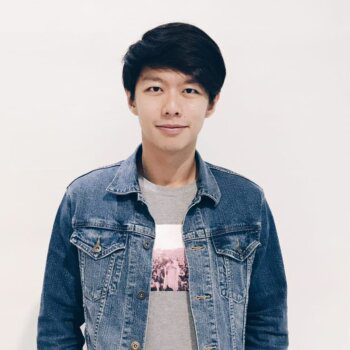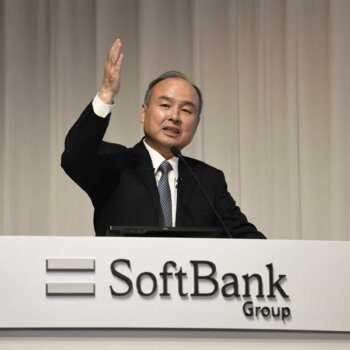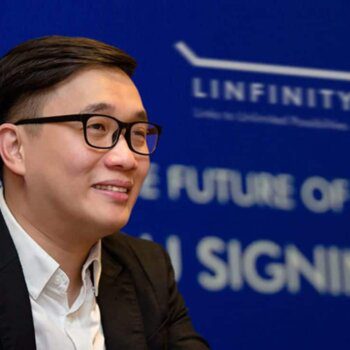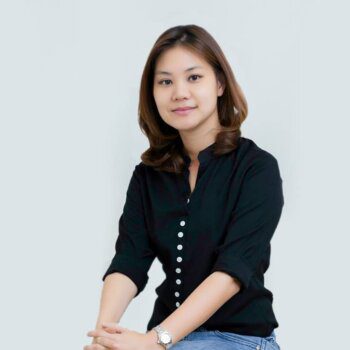It may be time to say goodbye to a well-trodden cliche. Young entrepreneurs are proving that Korea can do more than copy. The number of tech startups has surged by 80 per cent since 2011. The number of accelerators went from one to more than 50. Here marketing consultant Mario Gamper, who has worked for Platoon Kunsthalle in Berlin and Seoul, gives us a glimpse of how Korea is building a new culture of business creativity – that apparently rivals Silicon Valley…
There’s no need to look for suburban garages – the next generation of Korean businesses is born downtown. Many startups are home in the now-famous Gangnam district, a landscape of 400 ft glass towers, expensive suits and women with fashionable noses. Some of the startups, like online deal site Coupang, have already succeeded in sticking their own logo on an office tower. But even young hopefuls who are still demoing enjoy prime real estate. In brand new coworking space D.CAMP, teams polishing PowerPoints look out over a beautifully landscaped park.
“This is the best time ever to start your company in Korea,” said D.CAMP Manager Ryu Hahn. The coworking space and incubator is funded with more than $450m by 20 Korean banks who have formed the “Banks Foundation for Young Entrepreneurs”. Offering a wide range of support, from pitch clinics to funding, D.CAMP is just one example of the structures for new business ideas that popped up in the last couple of years.
After taking office in 2013, South Korean President Park Geun-Hye swiftly announced a more “creative economy” and launched the new Ministry of Science, ICT and Future Planning, and endowed it with a bunch of cash. For 2014, the ministry’s budget increased to more than $12bn, with over two billion going directly into beefing up the startup ecosystem.
“Korea is now the biggest startup in the world,” smiles Richard Min, cofounder of the SeoulSpace incubator and brand new Fashion Tech (FT) Accelerator. “60 per cent of all venture capital here is government-backed. In the US it’s one per cent,” said Min.
This creates a unique startup ecosystem: “Korea has always been a top-down economy. The government has now decided to merge it with bottom-up creativity. We’re creating a completely new business culture, one that’s not even seen in Silicon Valley, or anywhere else,” added Min.
Bold steps… but necessary
In 2012 the 10 biggest conglomerates were responsible for more than 80 per cent of Korea’s GDP, more than ever before. For decades the Chaebol – a form of business conglomerate in South Korea – throttled local entrepreneurship. In its quest to create new jobs, the Korean government is finally taking the side of SMEs. And it’s telling them to take bigger risks in hopes this will lead them to bigger markets.
“Before this year, almost all support was about creating a new startup. But this year they really pushed startups to go abroad,” Daniel Cho, cofounder of Step, a journaling app that used government funds to send a small team to the Plug & Play accelerator in Sunnyvale.
SeoulSpace founder Min seized the exceptional opportunities by starting his accelerator for fashion tech. As FT Accelerator’s Managing Partner, Min joins a programme that spans the globe, with offices in Silicon Valley and Milan. The first batch of Seoul participants just came back from a world tour, getting to know a wide range of experts, mentors and VCs in each location.
“You won’t find any other government offering that much support,” said Cindy Yun, one of FT Accelerators participants. Her business Atria offers a platform for Korean fast fashion designers. Already a million dollar company in Korea, Atria is ready to weave a global net of customers: “In the US and China, but especially in South East Asia.”
Going global
Jimmy Kim, cofounder of the SparkLabs Accelerator, credits an incredible brain gain for the uptick in business originality and global survival skills. “Many of our founders are people who went to top university or came back from abroad. Some have been consultants or have worked with a Chaebol. But they want more – they’re definitely not lifers.”
While former consultants like Yun and Cho are numerous among young Korean entrepreneurs, you’ll have a hard time finding the proverbial college-dropout: “Your parents took care of everything all your life, and then you drop out of Seoul National University? That’s just not going to work,” Kim said – the mere thought of it makes him laugh. Confucian filial piety and a sense of responsibility are deeply embedded in Korean startup culture. Whereas US startups like Facebook, Twitter, or Tumblr often seem to spring from a sense of play, Korean startups mean business. And increasingly that means global business.
“Korea used to be a Galagapos of business creativity,” said Kim. An ecosystem so specific, that ideas and solutions could be successful here, but wouldn’t make it anywhere else. “This has changed.”
David Lee is one of them. This past summer, his company Shakr Media won beGlobal’s Korean Startup Battle in Silicon Valley. Shakr Media uses templates to auto-generate videos from photos. Lee left a great impression with Valley investors, and just opened an office there. The Canadian-born founder may have started his company in Korea “but we don’t see ourselves as a Korean startup”. Like many of his peers, Lee takes careful steps to avoid the mistakes of previous Korean stars like Cyworld, who invented social networking, but never made it abroad.
That’s why the ability to be local on a global scale is built deeply into Shakr Media’s business model. The video-generating templates are produced by local video artists, who in turn get a share of revenue. In Korea, this ecosystem earns money with templates that create typically Korean 100-day anniversary videos. “In the US, it’s real estate agents that drive growth.” By definition, Shakr is always open to new ideas and Lee is currently inviting new template-creators for the US market.
Similarly, Daniel Cho has also left traditional ways behind. “Korean app design is just too crowded and too cute,” said Cho, who is part of SparkLabs’ accelerator programme.
After learning tough lessons in the past, there is now a strong sense of confidence among the members of the Korean startup scene. Yet, they still face some rather untypical challenges: “Korean culture makes it hard to start a business,” said Cho.
After investing most of their savings into their children’s education, Korean parents have clearcut ideas when it comes to their careers: “Of course my parents wanted me to go to Samsung,” said Cho. But while parents forgive, Korean banks don’t.
Banking barriers
Getting money may not be a problem for Korean business owners, but losing it is. According to Jimmy Kim, the bankruptcy laws are scaring potential founders away because loans are based on full personal guarantees. Default, and prosecution looms. “Only 5 per cent of startups will succeed, what will you do with the 95 per cent. Make them all criminals?”
Quite ironically, the opposite of going broke also comes with considerable stigma. In a country that’s proud of its homogeneity, getting rich without paying your dues in the conglomerates is equally frowned upon.
Within the startup scene, there is palpable dissatisfaction with the schools and universities that perpetuate those values. But when it comes to international exposure, Koreans may no longer have to wait for the school system to adapt. David Lee is confident that “Seoul is now offering an international experience”. As foreigners flock to the dynamic metropolis, Seoul’s urbanites have become much more interested and their English abilities have improved dramatically.
But focusing on current shortcomings might not be the most forward-looking strategy. It might be easier to simply bring the new generation to power faster. If the present is any indication, they are already building Korea’s creative economy by using its cultural assets rather than pondering its weaknesses. Ask anyone, and they will quickly point to fashion, beauty, gaming, entertainment as areas in which Koreans won’t be beat.
Reaching the next level
More and more new companies have global goals but use strong local jumping boards. 5rocks offers an ad platform for mobile games – using Koreas smartphone adoption rate to ramp up quickly. Memebox builds on the country’s beauty craze to achieve scale in mail-order cosmetics, while Alarmon implants local game designer skills into an digital service that uses monsters to wake or remind you.
And while few Koreans may have fond memories of their intense education system, even that is proving to be exportable. Born as a Korean startup, the math learning programme KnowRe has moved headquarters to New York, and is already working with schools in 34 US cities.
In a pleasant twist, the strong cultural bonds that sometimes inhibit business creativity at home are proving to be a boom for global expansion. “There is a powerful network of influential Koreans in Silicon Valley’s IT community,” said Cho, who thinks they will play a decisive role. “They have now seen that our production quality is great and they want to help Korean startups reach the next level.”
Back home in Seoul, the local pioneers who started offering services to a couple of creative entrepreneurs have now become viable partners for global VCs. Last month, Jimmy Kim’s SparkLabs launched a $30m global seed fund. “We realised we offer value for VC and companies who want to reach Asian markets,” Kim said. If this trend holds, the startup scene might even begin to shake off its dependency on government money and truly stand on it’s own feet.
written by Mario Gamper of Venture Village. see more.





























